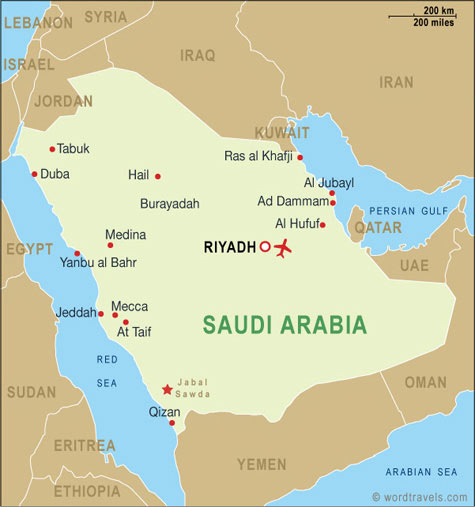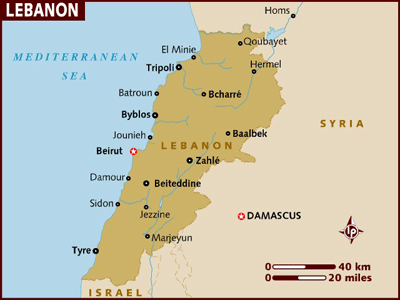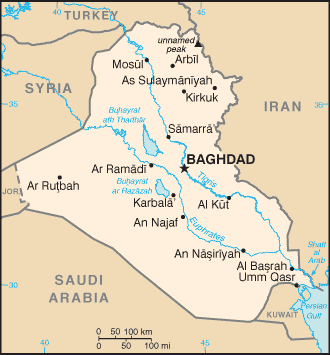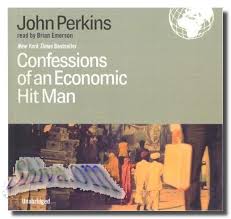Continuing our study of Western involvement in different continents through economic hitmen and jackals, we arrive in Africa. Perkins calls Africa the least understood continent, and the phrase has merit. The problems plaguing Africa sometimes overshadow the rays of hope that do exist there today. Though this hope is not my topic today, rest assured that there is hope and there are rays.
The problems facing many of the countries of Africa (many of them being part of the “Bottom Billion” coined by Paul Collier) date back to the times of colonialism but need not still be here with us. There have been other forces derelict that could have crafted a new route for some of the countries in spite of the colonial pasts but instead we’ve had new forces that have helped to sustain a path (for some, not all African countries) of stagnancy or plummeting health conditions, conflict conditions, and poverty. One of those forces deals with this concept of corporatocracy and effect of western businesses and business-supporting governments in the affairs of African countries.
The US had a role in the assassination of Lumumba in the DRC and supported malevolent dictators or leaders like Jonas Savimbi in Angola, Mobutu Sese Seko in the DRC, Laurent Kabila in the DRC, General Sani Abacha in Nigeria, Olesegun Obasanjo in Nigeria, Samuel Doe in Liberia, etc.
Sometimes forces for good unintentionally cause bad. In Uganda, peace talks began in 2006 (Joseph Kony is still free and roaming around) but one contribution to the late start of such talks is the presence of NGOs that provide wells, educational facilities, and food relief. Western governments and the Ugandan government shrank their responsibility for ending the fighting because of the gap being filled by NGOs. In other words, sometimes NGO work allows Western governments to show that the Western governments are doing something in a certain situation, when what we really need is for these Western governments to systematically address the root causes of the situation. So NGO work can substitute for diplomatic or political engagement (I’m not suggesting that elections solve anything; elections themselves do not represent democracy and many leaders have been forced to have elections to show they embrace democracy but can easily ensure the results that keep themselves in power).
Sadly a lot of Western business benefits monetarily from instability in Africa -- arms sales; exploitation of mineral resources, cheap labor, and agricultural products. In a stable, peaceful truly democratic (meaning there are checks and balances and accountability not just elections) DRC, it would be much harder to exploit mineral resources. We make money from natural disasters and man-made disasters such as war.
I remember when a large company named Shell had trouble with a Nigerian environmental activist. Because the government (oligarchy or plutocracy) colluded unofficially or official with Shell and mixed with corruption benefited an elite few, it was advantageous that Ken Saro-Wiwa stop organizing protests against Shell. He was arrested and tried by the government of General Abacha (a pro-western company dictator), and in November of 1995, he was executed by hanging along with 8 other environmentalists. I retrospectively remember this especially because Mandela considered it one of the dark spots in his time as president since he fought for the release of Saro-Wiwa.
During the Cold War, Africa became a battleground between what was labeled the communist threat and the capitalist threat depending on your perspective. When Lisbon decided to free her colonies, Washington went into heated internal debate about how to respond. The closure of the Suez Canal and the new supertankers made the case for a location or base to protect shipping lanes from Middle Eastern ports through the Red Sea, Persian Gulf, and Arabian Sea, into the Indian Ocean, around the Cape of Good Hope and up the west coast of Africa off into the Atlantic. A decision was made to put this fortress on Aldabra Island, off the east coast of Africa. This would add to Simon’s Town, a South African naval base that the US used to refit nuclear submarines before going back out to patrol.
The government planners discovered that Aldabra was a breeding ground for a rare species of giant tortoises and not wanting to face the backlash or bad publicity from ecologically-minded groups, they changed their choice to Diego Garcia, a large British territory and island in the Chagos chain, part of Mauritius. There was only one problem: people inhabited the island--1800 descendants of African slaves.
According to Perkins, EHMs and US and British intelligence agents, brokered a deal in 1970 where London secretly forced the inhabitants off the island. It was done secretly to maintain the pretense that the island was uninhabited. Many were sent to nearby Seychelles. Then England sold an uninhabited Diego Garcia to the US and received an $11 million subsidy on Polaris submarine technology. If you want to how much each life was valued at, do the math.
The Pentagon built the military base which housed B-52s and Stealth bombers it played a key role for the US, though relatively unknown. But a problem arose when James Mancham was elected the Seychelles’ first president after independence was declared on June 29, 1976. Mancham communicated with the US through South Africa and made it known that he supported the Diego Garcia deal. He offered to quietly take in the displaced Garcians and he enjoyed benefits from it according to Perkins. This doesn’t seem like a problem until you consider the Seychelles citizens.
They had a huge sense of national pride after independence and had a backlash against Mancham, the deference paid to the US and UK, and the policies causing Garcians to come to the Seychelles (especially since the influx of people created competition for their jobs). While Mancham was visiting London in 1977, Prime Minister France-Albert Rene led a bloodless coup and overthrew the president. Rene said he would give a greater share of the country’s wealth to the country’s poor and opposed the US military base saying the Garcians should be allowed to return back to their homeland. According to Perkins, EHMs were working this situation, but were pulled off the case in 1981 and jackals were called in.
The plan was for forty top jackals to assemble in Swaziland, fly to Victoria (capital city of Mahe), and meet up with an advance team (including a few women hired to get information out higher-ups). There were local cops ready to help and the only opposition would come from several hundred Tanzanian soldiers (Tanzoons) brought in by Rene near the airport. They were to creep into the barracks of the Tanzoons and shoot them in the night which would signal the uprising as they took the radio stations and the presidential palace.
However, the plan failed. Though the weapons were stored on the island, for some reason the plans changed at the last minute calling for some weapons to be brought with them. One jackal had an assault rifle that was poorly wrapped and was caught at the airport. A gun battle followed. The jackals captured more weapons and ammo from troops they ambushed on their way to the barracks. Other jackals tried to attack the Tanzoon barracks but failed. The fighting went on through the night. An Air India jetliner requested permission to land wondering why the lights were out. One of the jackals turned on the lights and granted permission to land. The jackals and Seychelles authorities talked on the phone and agreed to a cease-fire if the jackals would board the plane and leave the island. Some decided to stay behind but the remainder decided to take the plane to Durban, South Africa. At this point there was one dead, seven missing, captured or taken prisoner including one of the women accomplices.
The Seychelles government arrested the seven, eventually dropped the charges against the woman, sentenced four of the men to death and the other two to 10-20 year prison terms. After negotiations with Pretoria, South Africa eventually paid $3 million for the release of the 6. In the subsequent media coverage, the US and UK managed to avoid notoriety while South Africa took much of the blame. After that President Rene became more moderate and tempered his policies towards Diego Garcia.
The list of stories goes on and on. From agricultural subsidies that adversely affect the global poor (corn, cotton, etc.) to Western government agencies working with a company like Monsanto to rewrite Malian legislation to allow the introduction, sale, and patenting rights of Genetically Modified Organisms (GMO) crops. Sometimes the way such aid and development is structured, it causes farming communities in developing countries in Africa to become dependent on fertilizers, pesticides, newer plows, herbicides, and GMO seeds. Sometimes this is purchased on credit which sends some farmers in deeper debt (I don’t have statistics to give you percentages).
The strongest picture in my head of corporate interests in Africa deals with the very instrument on which I’m typing -- laptops. Laptops and cell phones. They both have tantalum, also known as coltan. And the Democratic Republic of Congo has it in abundance along with gold, diamonds, and copper. Remember that DRC has been embroiled in conflict for the past 15. After it’s independence from Belgium in 1960, Prime Minister Lumumba was assassinated by Belgian and U.S. backed opponents due to ties to the Soviet Union, according to TIME magazine’s 2006 cover story as reported by Perkins. General Mobutu Sese Seko took over after Lumumba. Mobutu’s rule was corrupt, though he was a “favored” by the US. But his rule disturbed the DRC’s neighbors and in 1996 and 1997 Uganda and Rwanda invaded and overthrew Mobutu installing Laurent Kabila as the new president. But even with Kabila the socioeconomic state deteriorated and Uganda and Rwanda invaded again in 1998 along with six other countries sparking Africa’s first World War.
Now when wars occur and countries invade the DRC, militias from Uganda and Rwanda earn millions--no--billions of dollars from the sale of tantalum that they collect and smuggle across the border. This is the same tantalum whose shortage caused a shortage of Sony Play Stations 2’s during the 2000 Christmas season. Now if you read the section “It’s Not About You” above, you know there is a Do-It-Yourself foreign aid woman who has been working to change the situation of tantalum which fuels wars in places in Africa. More still needs to be done. But this bright young woman (read the article) shows that there is hope and change does come.
Billions are made selling arms to both sides in conflicts. War enables corporations to sidestep tariffs, taxes, and human rights-based and environmental regulations. Again, corporations due profit when there is conflict.
I leave you with the words of U.S. Congresswoman Cynthia McKinney (D-Georgia) during a hearing she chaired April 16, 2001.
“Much of what you will hear today has not been widely reported in the public media. Powerful forces have fought to suppress these stories from entering the public domain.
“The investigations into the activities of Western governments and Western businessmen in post-colonial Africa provide clear evidence of the West’s long-standing propensity for cruelty, avarice, and treachery. The misconduct of Western nations in Africa is not due to momentary lapses, individual defects, or errors of common human frailty. Instead, they form part of a long-term policy designed to access and plunder Africa’s wealth at the expense of its people.
“. . .at the heart of Africa’s suffering is the West’s, and most notably the United States’, desire to access Africa’s diamonds, oil, natural gas, and other precious resources. . .the West, and most notably the United States, has set in motion a policy of oppression, destabilization and tempered, not by moral principle, but by a ruthless desire to enrich itself on Africa’s fabulous wealth. . . Western countries have incited rebellion against stable African governments. . . Have even actively participated in the assassination of duly elected and legitimate African Heads of State and replaced them with corrupted and malleable officials.”






